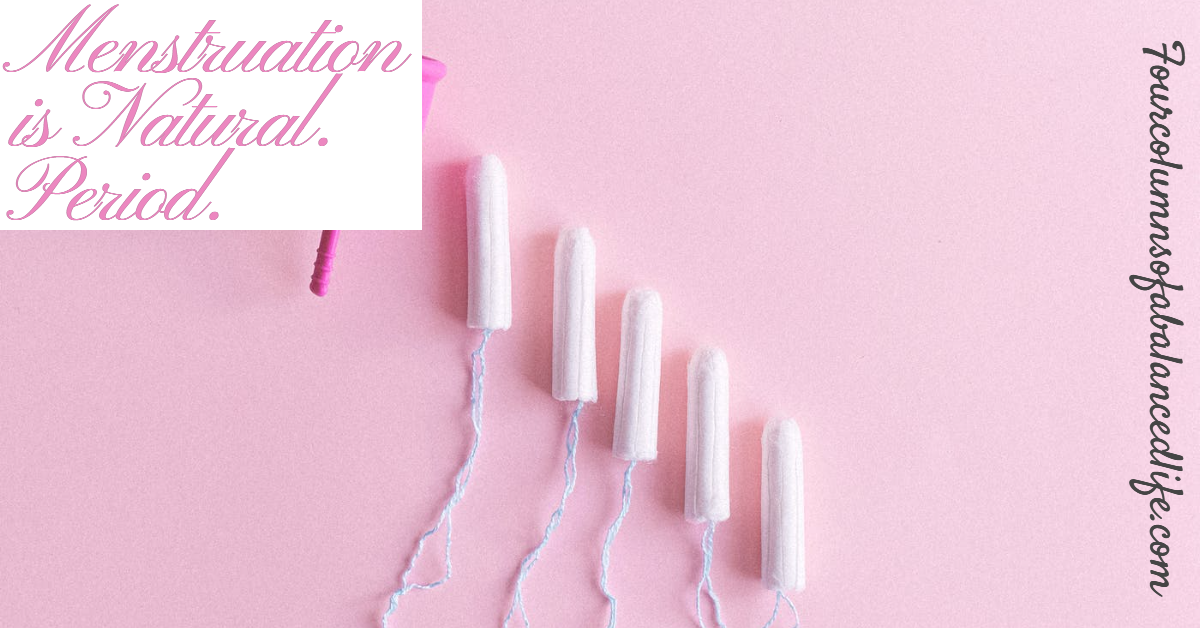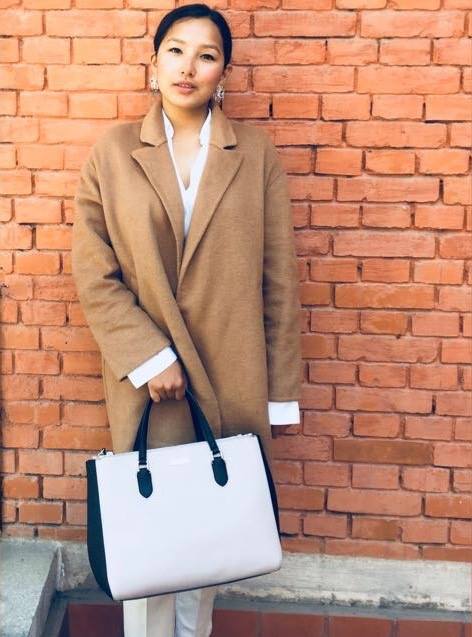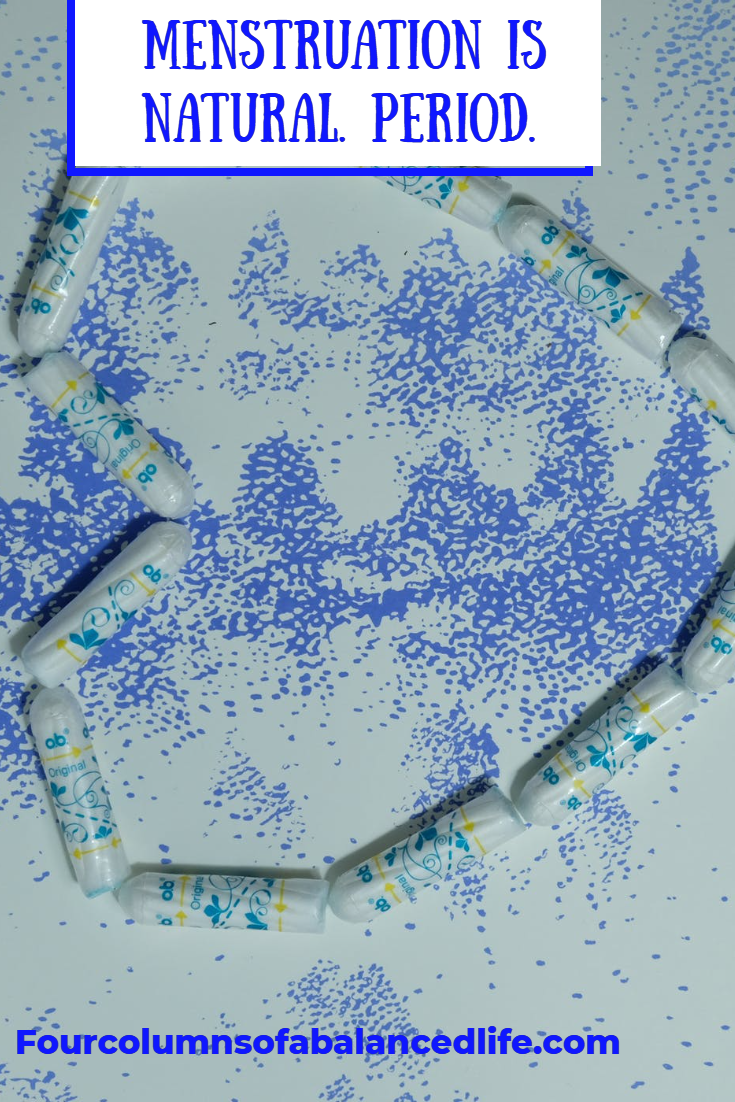Menstruation is Natural. Period.

The origin of all of us is clouded in contempt, confusion, revulsion, loathing and is forever blemished. Let’s face it, we all came out from the uterus.
I fail to understand why shame is connected to a bodily function. Shame is powerful, dominant, persuasive, preeminent, and authoritative. As an individual person, when you feel shame, you are disconnected from your self-worth, your community, and the intrinsic power to make a difference. When shame becomes hegemonic, it can cripple society. Menstrual shame is telling the girl there is something wrong with you, the body you live in and that sticks with you.
Menstruation is the hallmark of fertility and femininity. It plays a major role in the life of a woman from her teens to 50s.
62 million girls miss school because of shaming. It prevents the girls from their basic right to education. In many countries, girls miss school because there are no supplies or facilities. There is a lack of menstrual education which leads to infection. Girls face exclusion through shaming and teasing.
Certain societies have a social taboo around menstruation. Menstruation is seen as impure, awkward, and mortifying.
Jesselina Rana is the co-founder of a social business Pad2Go, that focuses on menstrual health management in Nepal. I am impressed with its three-fold approach to make a holistic impact. The first is providing sanitary products through vending machines, secondly raising awareness concerning social taboos behind menstruation and using a certain percentage of their profits by providing sanitary facilities in rural communities. They are a classic firm that focuses on corporate social responsibility.
Rana’s vision is to have a society that does not have any stigma linked to menstruation and to provide menstrual health products that are affordable. Her vision is the embodiment of Four Columns which is to empower women. Pad2Go has won awards in Switzerland and Singapore.
As we celebrate Women’s International Day all over the world, we all need to work on making a natural bodily function what it is, a natural body function. Jesselina is a game-changer, who wants to make a difference in society and lead the charge.

Jesselina, welcome to Four Columns. Please tell my audience something important about you?
My name is Jesselina, I’m a 25-year-old Nepali woman. Professionally, I am a human rights lawyer, social entrepreneur, and feminist activist. Something important about me is that I’ve been fortunate enough to realize my passion for human rights, more so women’s rights, at a young age and work towards building a career in this pertinent sector.
Walk me through how you ended up at Amnesty International?
I strongly believe that what is meant to be will always find its way. When in college I had a visiting professor from Amnesty International and I always admired her in-depth knowledge and passion for human rights. On returning to Nepal after graduating with a law degree from India I spent more than 6 months applying for jobs. My application was rejected every time on account of being a new college graduate not having had any work experience. In my 7th month, after having graduated and being unemployed, I saw a call for application as the Human Rights Education officer at Amnesty International (Nepal section). At this point, I was unsure if I even was a strong candidate but decided to apply anyway. I took a written exam, and 2 rounds of interviews only to be placed as an alternate candidate. I was disappointed that my 5 years of law school was not resulting in any job opportunity. However, about a month later, the candidate who was chosen had left the office on account of personal reasons, and the position was offered to me. I believe Amnesty and the work it stands for is my calling presently and somehow the universe aligned for this to happen.
Human rights differ in various countries and across cultures. What are basic human rights?
Although human rights oftentimes are said to be different in different cultures, I believe there are universal human rights that exist for all-the right to life, the right to express your opinion, the right to choose for yourself (whether in terms of bodily autonomy or otherwise) are some of many universal human rights.
Menstruation is a function of the body. Why is there a taboo around it?
Despite menstruation being a bodily function, countries across South Asia, including Nepal, continue to stigmatize the process and curtail the rights of menstruating individuals. Although a natural process the stigma around menstruation has been passed down through many generations. In ancient times due to the lack of availability of menstrual products, individuals undergoing menstruation for the purpose of hygiene, sanitation, and self-care may have been requested/opted not to go to the kitchen or certain other places. However, with it being passed down through generations of interpretation and intermingling with religion and culture, restrictive menstrual practices despite having access to sanitary facilities and menstrual products became an obligation and a burden for the individual to bear.

Talk to me about Pad2Go? How is it making a difference in Nepalese society?
Pad2Go is a for-profit social enterprise. A social enterprise is a mix between a traditional business and an NGO model. Our work focuses on addressing existing social problems while ensuring the model itself is financially sustainable through a business model- therefore not having the need to depend on donors for our funding. Pad2Go in 2018 pioneered in introducing sanitary napkin vending machines for the first time in Nepal. Although sanitary napkin vending machines are quite common in other countries, it was the first time such an innovative approach was introduced into the Nepali market. Our machines are placed across schools, hospitals, colleges, movie halls, ward offices, hotels. However, recognizing that access to menstrual products is only one of the many challenges within the menstrual health sector we wanted our working model to be more holistic. We, therefore, work through a threefold approach. First, we provide sanitary napkin vending machines, we have collaborated with two major pad companies one domestic and one international to provide pads at less than the market rate. Second, understanding that the lack of toilet facilities in rural schools is one of the major factors preventing girls from going to school during menstruation, 100% profit from the pads sold through the machines and 10% profit from the machines are used to construct gender and disability-friendly toilets in schools in rural Nepal. Third, acknowledging the lack of conversation around menstruation as a major cause for its stigmatization we conduct menstrual health workshops with both boys and girls in schools.
As a Millennial, define what does women empowerment means to you?
Although we grew up hearing the word “women empowerment”, having worked in the field of human rights for the past two years I am a bit uncomfortable with that word. The definition of “empowerment” means to give power to. I don’t believe women are powerless and require someone to give power to them; rather women already have power but some of us may need help acknowledging that and strengthening it for a better tomorrow.
Help me understand the status of women in Nepal? Are they breaking the glass ceiling in the corporate world?
Nepali women are bold, courageous go-getters- especially women of the new generation. Young women are taking on career paths that were earlier seen as “masculine” – from the tech industry to driving public vehicles. Women are definitely breaking glass ceilings. Although, there are women at the decision-making level there aren’t enough or even if present, sometimes are treated as forms of token representations. We need to further strengthen the capacity of women wanting to take lead, take charge and become role models for younger women while continuously advocating for an inclusive society.
Talk to me about the city you live in? I want to know about the food, restaurants and why we should visit them?
Kathmandu as a city has its own charm, it is a small city in a small country but has so many diverse things to offer. People from all different cultures from across the country are found here. The charm of local restaurants can’t be matched by high-end food chains, the charm of small quaint buildings can’t be matched by new skyscrapers but yet they all co-exist in harmony.
I want to know something challenging you have been through in your life. How did you deal with it?
In school, I dabbled in a lot of extracurricular activities -although good at it, I never excelled in any field. I saw my friends doing well, I saw them thriving in whatever they put their hard work in. For me- I just couldn’t find my calling in school, I was disheartened but kept my hope up. I now realize that people find their callings, their passion, at different points in their lives and we ought not to compare our step one to somebody else’s step 5.
It is 2031. Explain to me a day in the life of Jesselina?
In 2031 I’d like to continue being happy, at peace with how far I’ve come yet excited for how far I would go from there.


This work is SO important and I’m thrilled to see young women continuing what my generation started and being even more open about this. It isn’t a source of shame. It’s a natural part of being a woman and shouldn’t stop us from doing what we need to do.
Thank you sharing this. This is such a powerful message that needs to heard.
yes! yes! yes! Thank you for posting!